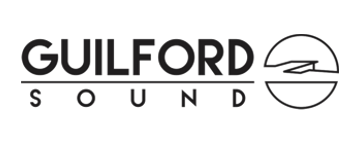1. We’re not a normal venue, and we’re entirely run and done by volunteers. A) Featured performers are playing for door at a 40-seater that rarely hits capacity. B) We aren’t offering professional services — if you want perfect audio or super-great video, you need to book time in a professional studio. They’re specialists, and they have way better gear than we can afford. And you’ll be paying market rate for bespoke product.
2. Nothing that isn’t under your own copyright is allowed. (Public Domain is OK.) If we hear a copyright violation, the PA gets turned off and the show is over. This is a zero-tolerance policy. We don’t have performance rights licensing for the room because we can’t afford it. Federal copyright law requires this licensing if copyrighted material is being performed or played, and the penalties for violations are stiff. One fine would kill Stage 33 Live dead. If you’re an affiliate of a Performance Rights Organization, your affiliate agreement is non-exclusive and it allows you to negotiate licensing independently. You, as the copyright owner, issue license to us directly. There’s an agreement and release that you’ll have to sign before taking the stage.
3. Performances must not promote discrimination, harassment, bullying, or sexual harassment, must be “PG-13” or milder, and FCC-safe. The FCC-safe part is ours, the rest is house rule established by the owners and tenants of the building that our performance space is in, which is shared in common by the artist-tenants, and is a public pass-through at all times and for all ages to their studios. We’re at the bottom of the food chain and we only exist through their grace. Everything we do and everyone we book requires the approval of the building’s owners and its tenants. We don’t own the real estate, and the performance space is not our proprietary room for our sole use.
- Available dates
- The sorts of things we book
- Compensation
- Set length, show time, load-in
- The room
- Stage and tech
- Promotion
- Everything is recorded and filmed
- Be cool, honey bunny!
What dates do you have available?
We keep a wait list and book first-come first-served in order of contact.
The biggest obstacle to participation that emerging performers face is the gatekeepers. We level the playing field by booking first-come first-served from a waiting list. Everybody jumps through the same hoops — local, regional, or national performers or presenters, brand new or well established.
This year’s schedule is booked full, and we currently have more than twice as many people on the wait list than we’re going to have dates next year. It’s nuts.
We do a show approximately once every three weeks, almost always on Sundays, from the last Sunday in August through the last Sunday in May. We’re painfully aware that this just won’t work for some of you.
Cancellations and Postponements
If you need to cancel, 30 days would be great though we recognize that’s not always possible. We’ll do the same for you. In the case of horrible weather, with your input we’ll try to call it one way or the other at least 24 hours in advance. Nobody is liable for things beyond their control. Performers are independent contractors. We don’t demand any exclusivity or lockouts. We’ll never cancel due to low presales… but we’re also never going to force anybody to play a show that they don’t think is worth playing.
What sort of acts do you book?
The room has mostly defined itself as an acoustic folk/Americana singer-songwriter place, but we run jazz, pop, rock, and more. Informative and/or entertaining original spoken word is absolutely and enthusiastically on the table — humanities and science topics are always super-welcome along with artful words.
Only original, copyright-owned material is allowed, whether music or words. Public Domain and Fair Use is also OK (proof is on the performer). Two reasons for this: 1. to celebrate original creativity; and 2. we can’t afford licensing from the performing rights organizations — nor could we survive the hefty financial penalty for violating copyright law.
Additionally, all activity in the building has to be relatively family-friendly, sort of a soft R rating, per the tenants and stakeholders of 33 Bridge Street. They also have right of refusal of all performers and dates. Here are the House Rules we need to abide by, FYI. Since we record and film everything for eventual broadcast, having it all stay as FCC-safe as possible is a good practice.
Our main intention is to help local and regional musicians and spoken word people find ears and eyes, but we also open our door to established and touring performers. We book first-come first-served. Everything we host is because somebody reached out to us. We don’t use a booking service, and we don’t solicit performers… don’t wait for an invitation, it’ll never come.
What’s the pay?
All workers should get paid for their work, and we do our best to make sure you get paid for yours. We hope to get paid for ours one day too.
Even though we keep the project’s overhead as ultra-low as possible, almost every time something breaks, or insurance comes due, we have to scramble. Sometimes the volunteers have put in their own money, which is sucky. If you have a good show and wish to make a freewill donation to help keep the project going, we won’t refuse it. But we won’t expect it either.
We generally meet the suggested Fair Trade Music minimum wage for the smallest venues in the worst markets for soloists (and sometimes duos)… but not always. Because we have no income, we’re not able to offer a guarantee, deposit, meals, etc.
On the other hand, we don’t snub artists who aren’t a guaranteed draw.
Headliners, Openers, and Co-bills
A hard pill for us to swallow is that openers, like us, work without pay… though the documentation we produce has value in landing more and better gigs if a person leverages it well. The documentation can be used by the performers in any way they wish. Openers are welcome to pass a hat, put out a tip jar, sell merch. Headliners are encouraged to tip openers, but it’s not required.
For open mics and short sets, there’s also no pay. But we do record and film those performances too, and the performer is welcome to use the material we produce in any way they see fit.
We don’t require headliners to have an opener, but prefer they do in order to help emerging performers get more experience and exposure. This is the only time we do any curation: making a musical match between the headliner and the opener. Headliners can bring on their own opener if they wish, or a co-bill — in that case, any stage-time and money-split agreements are between the headliner and whoever they recruit. We pay out full cash on the night to the booking party, it’s up to them to distribute per whatever agreement was made between those parties.
We give headliners right of refusal for openers we suggest. Sometimes a local musical match just doesn’t churn up, so we might want to run three or four open-mic-style short sets (usually 10 minutes each with quick turnover) that can be wildly diverse. Often, they’re people we’ve never seen or heard before. It’s fun.
Entry Pricing, Merch Sales
We work with headliners to set entry pricing to meet reasonable expectations. We can’t guarantee how many people will come to any given show, but there’s seating for 40. We almost never hit capacity.
Ticket prices or (or entry-by-donation, we’re happy to frame it either way) tend to range from a low of $5 up to $20 for a touring co-bill. For artists who don’t have to travel far to get here, $5 is common. Touring artists are usually $10/$15ish advance, $15/$20ish door. $20 is about the upper limit for this room before diminishing returns take over.
A pay-what-you-can with a suggested minimum is also fine, but resist any temptation to do a free show. In our experience people don’t value a show if a value isn’t put on it. In our room, free shows have had the worst attendance. We’re fine with flat price, age-tiered, or pretty much any other structure. If you want us to state that nobody will be turned away for lack of funds, we happily will. We’ve never tried a pay-as-you-exit scheme but are open to it. If you want to do entry-by-canned-goods-for-the-food-shelf or something, we’re up for it.
We set up online advance ticketing / donations for every show. All seating is festival.
All merch sales are yours; we provide a large well-lit merch table made from an old football scoreboard that has a portal to outer space on the front. That’ll make sense when you see it.
Normally we do everything on a handshake, but if you need us to sign something just ask.
How long do we play, when do we go on, when is load-in?
Set Length
We don’t run a strict clock. Headliners usually do about 70 to 90 minutes in a single set. Openers, about 20 to 25 minutes. Co-bills doing individual sets tend to do about 50-55 minutes apiece, with a short break. Co-bills backing each other and alternating songs usually do one set of about 90 minutes.
In our room, every time one act does two sets there’s audience loss at the break no matter how amazing the performance is. Never happens when individual acts do a set each, just when one act does two sets. So weird. Consequently, we strongly recommend headliners do one long set rather than two short ones. (We’ve had savvy performers direct a short stand-and-stretch from the stage if the audience seems to need it. Just a wee focused minute so people don’t wander off. With the right patter, it’s just a fun part of the show.)
Headliners and co-bills are encouraged to read the room and go longer or shorter by feel. When magic is happening, we don’t want arbitrary rules getting in the way of it. Shows where things just ain’t clickin’ are rare in our experience, but if going shorter than your setlist seems like the right thing to do, that’s OK.
Start Time
Most shows are either 7:00 PM starts or 3:00 matinees, your choice. We’ve also had 4:00 and 6:00 starts. Oddly, attendance isn’t affected by the start time. If we had a bar or were allowed to do BYOB, evenings would almost certainly be the better choice… being a dry room has advantages and drawbacks alike.
Note that the room is daylit when the sun is out, but we run the lights anyway.
Load-in and Soundcheck
Load-in is whenever you feel comfortable getting there before the start time. Our aim is to be ready for soundcheck at least 90 minutes before door, but we start setting up long before that — so if you want to load in extra-early and then go out for a meal or a walk before soundcheck, your stuff will be supervised and safe.
The room dials in quickly, but more soundcheck is generally better than less. If you don’t need floor wedges, that’s great — less bleed in the recording. Getting the monitors right takes longer than FOH. Monitor mixes are currently sent from the board, but we’ll be upgrading to a system that will accommodate monitor mixing via an app on your phone or tablet for wedges or IEMs (supply your own, including transmitter if you want wireless).
There’s a loading dock if you’ve got a lot of stuff to schlep or it’s raining, or you just like loading docks as much as we do.
What’s the room like?
It’s a sort of souped-up house concert in a light-industrial setting, a makeshift space in an old factory turned creative economy incubator in a building on the National Historic Register that also has the studios of fine artists, craftspeople, and artisans.
Stage 33 Live doesn’t piggyback on a coffeehouse, or a bar, or a restaurant, and BYOB isn’t allowed. We do this one thing, and consider the lack of distractions a boon. Not everyone agrees and that’s OK. We have coffee, soda, water, and weird snacks available (by donation for the audience, free for the talent).
We don’t have a proper green room, but there are a couple depressing, spartan places somewhat removed from the performance space where we can set you up.
What are the technical particulars?
The stage was the only thing in the room when we started, we inherited it. It’s homemade from 2x6s and plywood, 8′ deep and 16′ wide and only about 5″ high and we have thick padding and plush carpet on it because otherwise the whole thing acts like a giant resonator. We hope to do something about that from underneath at some point. In the meantime, it’s a little squishy up there which is either kinda cool or sorta frustrating (for drummers and keyboard players mainly).
The stage backdrop is black drape. If you wear black, you might look like a performing head on camera.
We have an OKish mic locker (which includes some workhorses from the fabled Fort Apache Studios), and everything normally needed for sound reinforcement. We typically use Shure SM7Bs for vocals because they’re forgiving of underdeveloped mic technique and work well across voice types in our weird hybrid live-plus situation. You can bring your own mics if you wish, your own DIs if you want, whatever smalls help you feel comfortable.
32 channels of send to a Midas M32. 24 channels of pre-console audio capture using stacked Audient interfaces. 32 channels of redundant capture via the console, just in case.
Our wedges are sad but do the job. If you don’t need monitors, we’re happy to not set them up because it helps keep bleed down on the recording. Monitor mixes are set via tablet or the console. If you’re comfortable mixing your own wedges (or IEMs – supply your own, including transmitter if you want wireless) via phone or tablet, we’re OK with that.
House speakers are a pair of full-range vintage Bag End AF1s. We don’t run a sub, by choice. For nastier shows we have alternate Cerwin Vega / Peavey stacks, also vintage.
Sound person supplied; you’re welcome to bring your own but ours will hover to answer any questions because the dual live + multitracking thing adds weird layers.
If you have unusual needs, let us know — we’ll try to make it happen.
We don’t have any backline or house instruments.
We have color-shifting LED stage floods but no fancy lasers or smoke machines or like-that. The room is daylit during daylight hours, something to keep in mind.
We love to get stage plots and input lists in advance.
If you want to do a true acoustic show with no amplification whatsoever (including nixing the PA), we’re game.
Do you promote?
We promote hard, but it’s 100% guerilla. Even a small conventional ad buy could eat half to all of the gate receipts and would come directly off your bottom line.
We land decent column-inches in local and regional traditional press pretty regularly. We list in appropriate print and web calendars. We push hard on social media even though social media seems to be increasingly irrelevant. We have an opt-in email newsletter. We post flyers in choice high-traffic spots in the village.
We can promote better if you supply us with a good bio and some press boilerplate, high-res photos, and anything else that seems useful.
We put a lot of effort into selling the sizzle, but sometimes turnout is disheartening. There’s no apparent rhyme or reason to what clicks and what doesn’t. For many pros and touring folks, working for door in a small room is deal-breaker territory, and appropriately so. On the other hand, we feel no shame being a tour-hole-filler.
Even though the real legs of the project is the documentation, we’d rather have more people in the room than fewer solely so that you get paid better. As far as the documentation goes, an enthusiastic handful can be better than a half-hearted capacity.
We’ll try to accommodate it if you want to have a closed set on purpose, which can make for a less stressful environment. And performers booked elsewhere may be contractually restricted from additional public performances, though may be interested in popping over for a closed set.
Or if you’re a bigwig wanting to have fun playing secret show under a pseudonym, we’re down with shenanigans and can keep a secret. (Has this ever happened here? Not yet.)
We say this without negativity: The immediate community is a one-square-mile rural village of 3,000 with a poverty rate of over 25%… the wealth, education, and leisure gaps are wide. A significant percentage of the attendees come in from nearby communities and farther-flung places; at one memorable show, five states were represented. However, our local attendee pool is growing — so we’re doing something right, and we’re pleased that the part of our mission to serve our community is working.
You record and film everything?
We do. Everyone who performs or presents is recorded and filmed. We have an intimidating release form — mostly so that when your back-catalog gets released by a major and their lawyers-on-retainer come after us on copyright grounds, we can show them the thing where you said it was cool. We have no intention of screwing over anybody, ever. The release is meant to cover everyone’s butts, yours included, by spelling out everything as completely as possible — even stuff that’s almost certainly never going to happen in a million years. You’ll need to sign one before you take the stage.
We’re not a professional service, however. If you want perfect audio or crazy-good video, you need to book time in a professional recording studio and with a professional video service. Those places will have way better gear than we can afford. Which you’ll pay for, along with their labor and expertise, which is right and fair.
We believe that decent documentation of a warts-and-all performance is better than something that’s technically fabulous but basically soulless. No media will ever replace being in the room, but hopefully it can inspire people to buy your work and to hit more live shows. Half-decent performance videos can also help you land bigger and better bookings. Our intention is that the two things should support each other, the live part and the documentation part.
We’ll eventually be using the recorded material in broadcast programming that we’re hoping will ultimately get picked up by the regional public TV and radio syndicates. In the meantime (and probably for all time), we’re posting clips on YouTube.
We document without much interference — but we want everyone to shine, so we may stage-mom just a little. No stress. Come prepared but have fun. Do the hell out of the thing. It’s supposed to be enjoyable and rewarding and fulfilling.
We make decisions in producing the documentation that are intended to enhance, and sometimes to compensate. The intention is to help everyone sound and look as good as possible — and also to try to hold the listeners’ and viewers’ focus in a sea of other things to listen to and watch. Sometimes that part means making the footage more visually interesting than a couple fixed camera angles. For the audio we try to find a balance that works on everything from wee cellphone speakers on up. We aim to consider audiences ranging from just-the-facts festival bookers to the far larger pool of casual viewers who will hopefully buy your music or go see you play live if we can keep them watching and listening long enough. It’s tricky and elusive, and largely arbitrary.
We don’t offer bespoke tweaking. We just can’t. We’re volunteers. Have mercy.
Sometimes a performance won’t get used for a variety of reasons. If a particular performance is OK with us but just makes you cringe, let us know and we’ll almost certainly bury it.
Performers can use the audio and video we produce in any way they see fit, including monetizing it.
Be cool, honey bunny!
No whining, K?
By our reckoning, this applies to less than one out of a hundred performers, so chances are excellent you’re not one of them.
Ever work a free gig for a cause or as a favor, but then somebody sucks the air out of it? They’re probably not a jerk, they’re just invested in wanting the thing to be the best thing they think the thing can be. Which is honorable. But telling you that you have to play something other than your planned repertoire, or hitting you with the surprise that you’ll be the accompanist for their tone-deaf cousin for the evening, or changing their mind about which side of the room you should be in after you’ve set up, or belittling your performance, or expecting you to also bus tables and sweep up after the show… not cool.
We’re never gonna do any of that kind of stuff to you.
Here’s the thing though: We’re the ones working the free gig. You’re the cause we’re supporting.
Our intention is to contribute — to the best of our ability and judgment, and within our equipment’s limitations and our own, and within the bounds of reason, sanity, and self-preservation — to the ascendancy of your arc.
Business-minded people scold us for paying you instead of charging you. There’s no denying that it’s a lousy business model, but we’re not running a business. It’s a mission. And we think it’s worthy. But we’re real-life actual human people, not bottomless pits.
It never leaves the top of our heads that you’re trusting us. We always do our level best for you in every way.
We’re on this road together, you and us, trying to do what’s good and right and affirming despite our respective frailties and shortcomings.
If all the preceding sounds OK and you want us to add you to the waitlist, drop an email to stage33@stage33live.com — include some info about yourself. We’re happy to answer any questions.
















